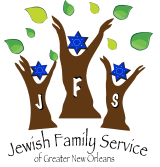This month, lesbian, gay, bisexual, transgender, and queer people will celebrate themselves and honor the people who catalyzed the Gay Liberation Movement with the Stonewall Uprising of 1969. Pride month is a time of both self-affirmation and reflection for the queer community. Despite the enormous obstacles the LGBTQ community has overcome to secure their rights, there is more work to be done. As we celebrate and honor queer life and identity this June, let’s also focus on how we can make the world safer and more fulfilling for LGBTQ people. Mental health is an essential part of equity and equality for all.
While not all members of the LGBTQ community have the same experiences with mental health, it’s important for us to admit that harassment, family rejection, denial of rights, violence, and discrimination are common experiences for many of the community’s members. Such experiences can, unsurprisingly, create and/or exacerbate mental health issues.
According to the National Alliance on Mental Illness:
- LGB adults are more than twice as likely as heterosexual adults to experience a mental health condition
- LGBTQ people are at a higher risk than the general population for suicidal thoughts and suicide attempts
- High school students who identify as lesbian, gay, or bisexual are almost five times as likely to attempt suicide compared to their heterosexual peers
- 48% of all transgender adults report that they have considered suicide in the past 12 months, compared to 4% of the overall US population
No matter how you identify, we can make life safer and more fulfilling for everyone, especially those in the LGBTQ community by:
- Checking in on the well-being and mental health of those in our community.
- Being open and non-judgmental to concerns about mental health.
- Responding positively when people open up to us about their gender identity or sexual preference.
- Respecting individuals’ life choices in how they dress, refer to themselves, etc.
- Taking action when concerned about the health or well-being of others.
- Educating ourselves about the experiences of those different from ourselves.
If you’re interested in speaking with a counselor, please get touch with JFS: (504) 831-8475 jfs@jfsneworleans.org.
← Blog